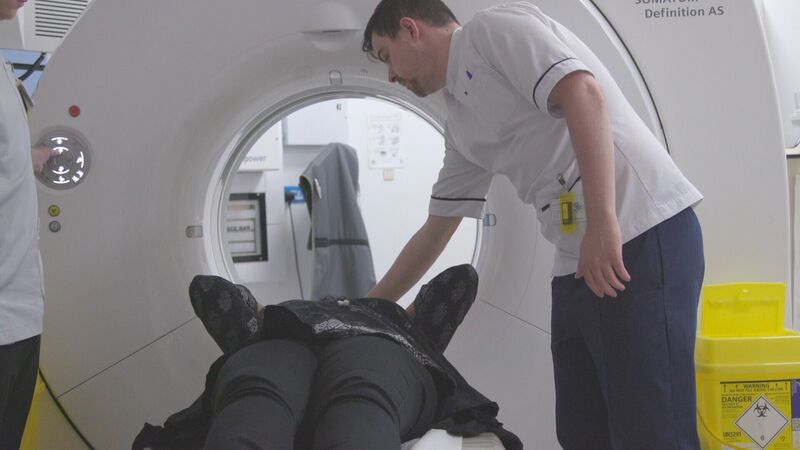Increase in number of patients accidentally exposed to ionising radiation in Irish hospitals last year

File picture of a patient being set up to have a Computed Tomography (CT) scan. Picture: PA
76 people were unintentionally exposed to ionising radiation in Irish hospitals in 2020, according to the Health and Information Quality Authority (HIQA).
This figure represents an 11% increase on the total reported in 2019.










